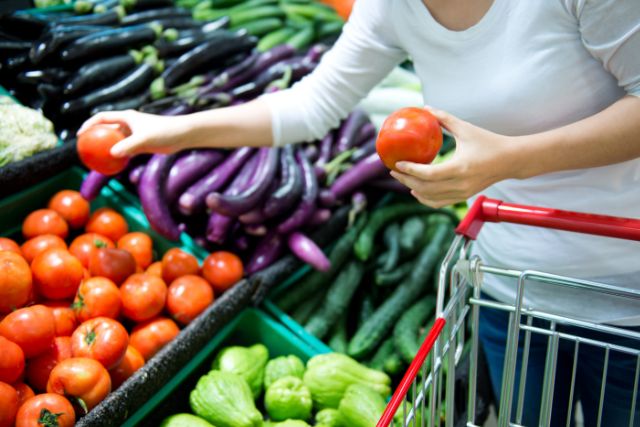Recent Posts
-

- Diabetes-Friendly Nutrition: Smart... 08.12.2024
-

- Nutrition for Chronic... 08.12.2024
-

- Anti-Inflammatory Diet: Food... 08.12.2024
-

- Low-Sodium and Heart-Healthy:... 08.12.2024
-

- Plant-Based Diets for... 08.12.2024
How can I Save Money on Groceries and Eat Healthily?

Is it possible to save money while being healthy? Often, there is a price to pay if you want to stay and eat healthily, and it costs much more than your average grocery spending. But lucky for you, there are still tips and ways on how you can maximize your financial resources and still get to eat healthily.
Let’s get started!
Make a meal plan for the next week so that you don't end up purchasing food you won't eat or finding yourself in a bind by Wednesday and needing to rush back to the shop. Because dining out at a restaurant or ordering takeout is far more costly than preparing meals at home, you will have a lower propensity to do so in an emergency.
The overall plan for the week involves more than just organizing your meals. It entails eating intuitively and thinking about the week, even down to purchasing the chocolate cookies you know you want to eat even though you shouldn't. After all, maintaining a healthy balance in one's diet is essential.
Don't be fooled by the "99 cents" sign when checking out the pricing. Although it seems so simple, it is a ploy used in marketing that has tricked each of us at one time or another. When mentally keeping track of what your potential bill may look like, calculate the price of the pack of strawberries as $5.00 even though it only costs $4.99.
The items currently on sale are usually clearly marked at grocery shops. It is simple to do a quick search and determine what is affordable and what is not. You may feel compelled to purchase that four-dollar-ninety-nine-cent bunch of strawberries. Still, instead of doing so, you should consider purchasing another kind of fruit that is either on sale or more economical.
Similarly, it's a good idea to take advantage of the offers if you come across anything that's on sale and you already have a limited supply or that you know you'll need soon. However, doing this every time there is a sale will result in more money spent than saved, so keep this behavior within reasonable bounds. In addition, even if the item is on sale, you should be sure that you are not stocking up on food you won't eat or will go bad soon.
Because it had been days since your bodies had last come into touch with a vegetable, you all have done the thing where you have guiltily placed a bag of carrot sticks in your cart because it had been days since you had last eaten a vegetable. However, if you have no intention of actually consuming the carrots, you will be forced to throw them away, resulting in a financial loss.
Your weekly expenditures don't need to increase due to consuming healthier foods rather than processed meals. It is essential to remember that the price shown on the sticker for junk food is sometimes substantially lower than the actual cost of the meal. A lousy diet may take a toll on your health and lead to more significant medical and prescription expenditures in addition to diminished energy and productivity caused by the poor health that it causes. However, you may save money and safeguard your health by making informed decisions about the foods you eat.
The price of organic vegetables often exceeds that of conventionally grown produce. Recognizing which foods have the highest levels of contamination (and which have the least) can allow you to choose between organic and conventional goods, ultimately saving money. The Environmental Working Group ranks the worst and best offenders on its website every year. During the previous year, strawberries, spinach, and kale led the list of produce with the highest levels of pesticide residue, while avocados, sweet corn, and pineapple had the lowest levels.
The cost of meat is high. If you choose to eat vegetarian or vegan at least once every week, you can reduce the amount of money you spend on food, increase the number of dishes you can prepare, and have a minor impact on the environment.
You should plan, buy a large number of your favorite fruits and vegetables when they are at their height, and then freeze them for use at a later time. Your freezer is beneficial for storing frozen foods and enables you to take advantage of sales and deals when you come across them. Consider purchasing a large quantity of the meat and seafood you like eating whenever it is on sale.
Sources:
- 7 Ways to Save Money On Groceries & Eat Healthy | TD Bank Money Saving Tips
- Eating Well on a Budget - HelpGuide.org
- 15 Tricks to Save Money on Food But Still Eat Well | EatingWell





